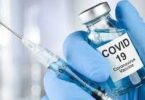The heart is an organ that pumps blood throughout the body and is the size of a fist. This function can be affected if the heart muscle becomes inflamed as blood pumping is reduced.
The heart has two upper chambers known as the right and left atria, they receive blood returning to the heart from the body. When the muscles in the atria contract, blood is compressed in the two lower chambers of the heart, known as the right and left ventricles. The pumping of the ventricles creates the pulse that is felt in the wrist or neck.
Myocarditis is considered as a rare disease and affects thousands of adults and children worldwide each year. According to the statistics published in Lancet, November 2018, for the year 2017, 3.1 million cases of myocarditis and cardiomyopathy were diagnosed.
Causes of myocarditis
Virus infection is one of the main causes of myocarditis. It can also be due to a drug reaction or a general inflammatory condition.
Other causes of myocarditis include cancer, bacterial infections and other contagious diseases, and people with autoimmune diseases. Also included are environmental toxins ranging from metallic poisons to spider and snake venom.
Symptoms of myocarditis
The diagnosis and treatment of myocarditis is challenging due to the lack of specific symptoms, however the most common may include, among others: Shortness of breath, especially after exercise or when lying down, pain or pressure in the chest, fatigue, palpitations of the heart heart, confusion, swelling in the hands, legs, ankles, and feet, dizziness or feeling light-headed, and arrhythmias.
Diagnosis of myocarditis
Most cases of myocarditis go undiagnosed. However, when a person does develop symptoms, common tests for myocarditis include the following:
Electrocardiogram, chest x-ray, echocardiogram, cardiac magnetic resonance imaging (MRI) to diagnose myocarditis, rarely a heart biopsy to confirm the diagnosis.
Treatment for myocarditis
There are currently no known lifestyle options or medical treatments that can prevent myocarditis. However, the cardiologist will treat the symptoms caused by the effects of myocarditis.
Recommendations
Avoid rigorous exercise and competitive sports.
Generally, cardiac rest time is from 3 to 6 months, but this depends on the case. Effortless walking.
Avoid tobacco and alcohol consumption.
Avoid caffeinated products, including energy drinks.
Healthy lifestyle changes can also help your heart work properly.
Recurrence of myocarditis
Myocarditis can recur and, in some cases, can lead to dilated cardiomyopathy. Although the risk of recurrence is low.
If any of the aforementioned symptoms are detected, it is important that you consult a specialist.
The Myocarditis Foundation is dedicated to supporting researchers and clinicians in the search for a cure.
https://www.mayoclinic.org/es-es/diseases-conditions/myocarditis/symptoms-causes/syc-20352539







